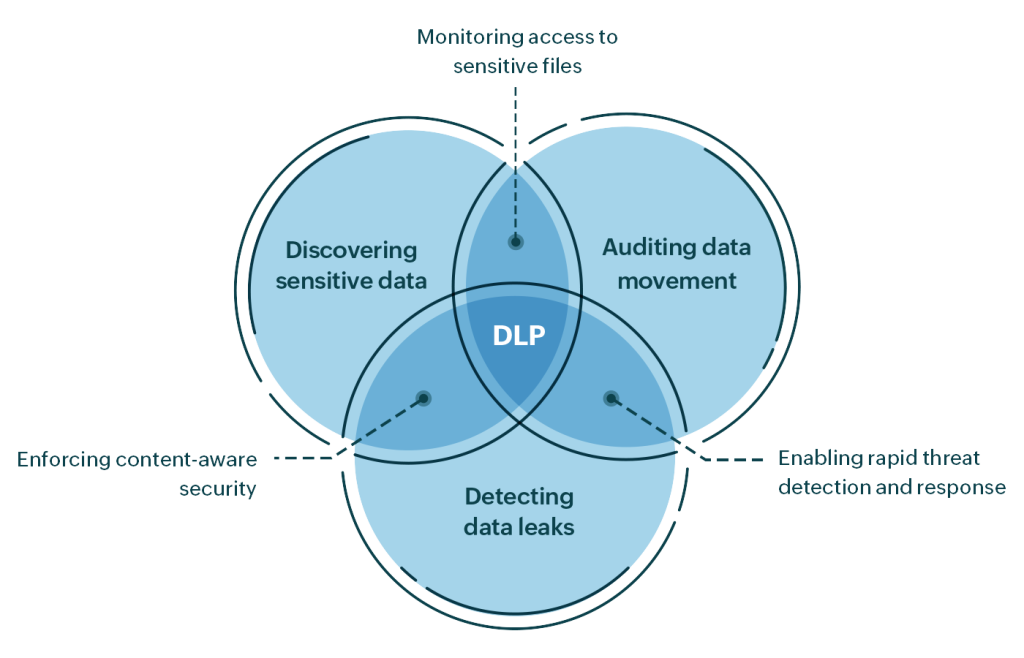Data Loss Prevention: The Key Solution for Corporate Data Security and Compliance
Currently, data is one of the most valuable assets for companies. Protecting data from leaks or losses is a top priority to maintain stakeholders’ trust and comply with applicable rules and regulations. Data Loss Prevention (DLP) is a strategy and technological solution aimed at detecting and preventing the leakage of sensitive data. This article discusses the importance of DLP for companies, the main components of DLP, and the benefits derived from its implementation.
Key Components of DLP

Read Also: Securing the Future of Business: Benefits of Cyber Security Maturity Review
Sensitive Data Identification:
- Identifying and classifying sensitive data, such as personal information, financial data, and company confidential information.
- Using technologies such as content scanning, metadata, and pattern recognition to detect protected data.
Monitoring and Supervision:
- Monitoring network activity and endpoints to detect potential data leaks.
- Implementing security policies that monitor emails, file transfers, and web activities.
Prevention:
- Implementing controls to prevent the transmission or storage of sensitive data in unsecured locations.
- Using encryption, access control, and policies that restrict access to sensitive data only to authorized users.
Incident Response:
- Providing mechanisms to quickly respond to and manage data breach incidents.
- Using logs and audit trails for incident investigation and vulnerability assessment.
Benefits of DLP for Companies
In today’s era, companies face various threats to data security, including cyber attacks, human errors, and accidental data leaks. Data breaches can result in significant financial losses, reputational damage, and legal penalties. DLP helps companies to:
Enhanced Data Security:
- Protect data from internal and external threats, thereby reducing the risk of information leaks that can harm the business.
Regulatory and Standards Compliance:
- Help companies comply with various regulations governing data protection, such as the Personal Data Protection Act, POJK, and PBI, thereby avoiding fines and legal penalties.
- Assist companies in the implementation and compliance with standards that require medium and high-level security implementations, such as TISAX.
Operational Efficiency:
- Automating the processes of monitoring and preventing data leaks allows companies to focus on their core business activities.
Customer Trust:
- Ensuring that customer data is well protected, increasing customer trust and loyalty towards the company.
Cost Reduction:
- Preventing financial losses associated with data breaches, including remediation costs and reputational impact.
Conclusion
Data Loss Prevention (DLP) is a crucial element in a company’s information security strategy. By implementing effective DLP solutions, companies can protect their data assets, comply with regulations, and maintain customer trust. In an increasingly digital and connected world, investing in DLP is a proactive step to ensure the long-term sustainability and success of the business.
IFCG is committed to supporting companies in facing cybersecurity challenges by designing robust cybersecurity strategies, ensuring effective protection of digital assets, and strengthening trust in an increasingly connected era. Contact Us to discuss with our expert team!



